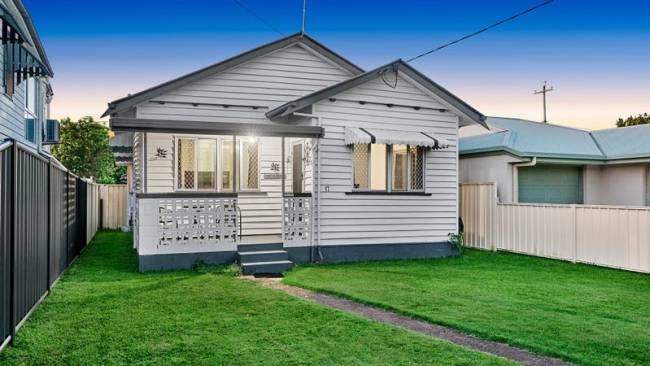QLD house prices skyrocket: How much is your home now worth?
Homeowners in some Brisbane suburbs are pocketing up to $50,000 a month just by sitting on the couch with house prices skyrocketing in the past three months. SEARCH THE INTERACTIVE
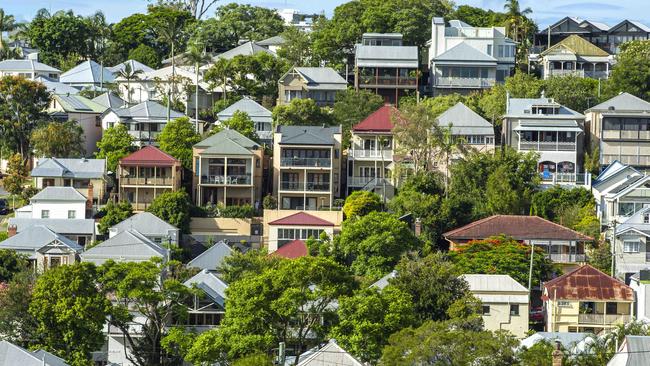
Property
Don't miss out on the headlines from Property. Followed categories will be added to My News.
Homeowners in some of Brisbane’s most popular inner suburbs are pocketing up to $50,000 a month just by sitting on the couch as new figures reveal the staggering pace of Queensland’s housing boom.
House prices across the city exploded in the first few months of the year to hit record heights for a sixth straight month, with the median house price skyrocketing to an all-time high of $621,806 by the end of April.
SCROLL DOWN TO SEARCH THE INTERACTIVE
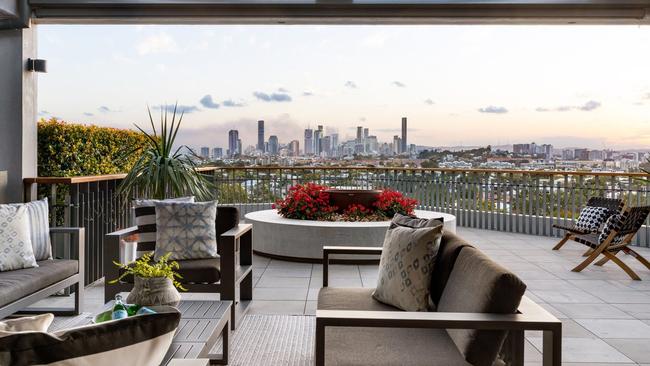
In the first look into just how fast property prices have grown since the start of the year, the latest figures from property research firm, CoreLogic, reveal Queensland’s housing market is now worth a whopping $1.2 trillion — 15 per cent of the total value of Australia’s residential market.
Thirty-four suburbs across the state recorded double digit house price growth in just three months, with many now topping the $1 million median mark.
Apartment prices also accelerated, with Greater Brisbane’s median unit price hitting a new record high of $405,902 as of April.
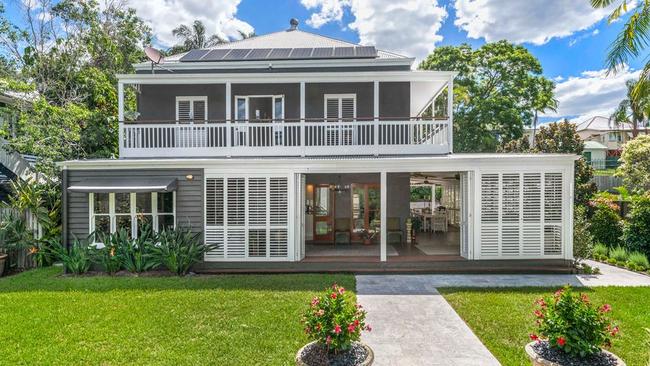
The top growth suburb for the quarter was Balmoral, with the median house price climbing 11.2 per cent — or an eye-watering $122,915 — in the three months to hit $1.2 million.
It was followed by Seven Hills, where homeowners made more than $108,000 from growth of 11.1 per cent in the first three months of this year, and Red Hill, where house prices jumped more than 10 per cent or $98,000.
The biggest earners are in Hamilton where the median house price increased 9.8 per cent to $1.76 million — an increase in dollar terms of around $52,500.
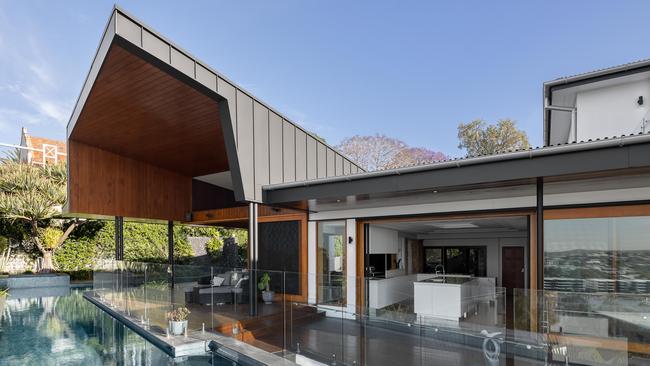
Unit prices surged the most in the inner east suburb of Bulimba, with the median unit value gaining 8.7 per cent to $650,685.
“We’ve seen some extraordinary growth rates in the March quarter of this year, with Brisbane values up 4.8 per cent,” CoreLogic head of research Eliza Owen said.
“If we compare that with the decade average of quarterly growth rates, the quarterly movement in value is closer to half a per cent, so that gives you an idea of how extraordinary the momentum has been.”
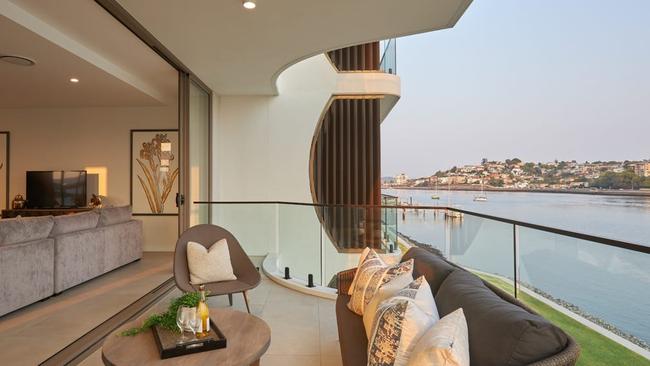
But Ms Owen said the huge price gains seen so far this year were unlikely to last.
“The pace of growth has started to slow across many parts of Australia, and Brisbane is a part of that as well,” she said.
“We won’t see as explosive movements as in the March quarter.”
Ms Owen said part of the reason some of the highest house price gains were in Brisbane’s inner suburbs was because they were traditionally occupied by higher income earners.
“The wonderful thing about Brisbane is that it does offer a combination of laid-back lifestyle, as well as the convenience of being in a city centre,” she said.
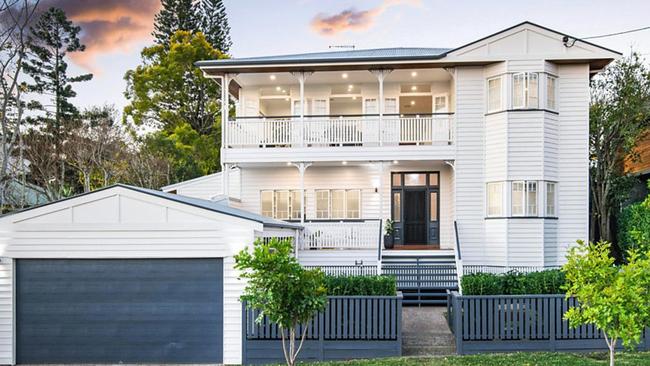
“Not everyone can up and work remotely. It tends to be people in those higher income sectors that have the capacity to change their lifestyle, so that has put additional pressure on house prices in those inner areas.
“The price gains are also being driven by the migration of people (from interstate) who are on higher incomes.”
Over a longer term, waterside suburbs on Brisbane’s bayside and Redlands have outperformed.
In the 12 months to the end of March, house prices grew the most in Shorncliffe — up nearly 20 per cent to a median of $837,921 — followed by Coochiemudlo Island and Russell Island.
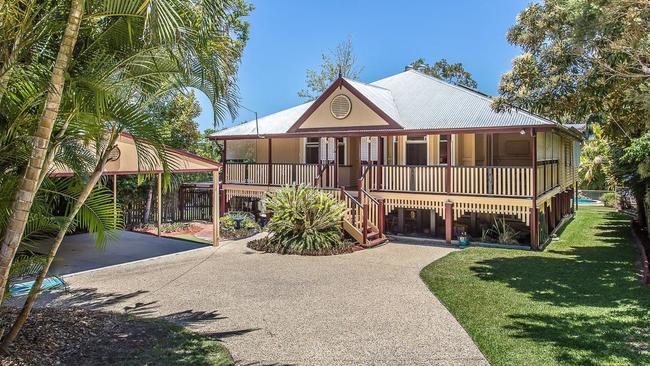
The median unit price in Cleveland jumped 25 per cent to $443,406, while unit values in neighbouring Ormiston, Wynnum and Thorneside also shot up.
But homeowners in the Noosa hinterland are proving to be the biggest winners of this housing boom.
House prices skyrocketed nearly 30 per cent in the small town of Pomona over the past year, with the median value now $706,595.
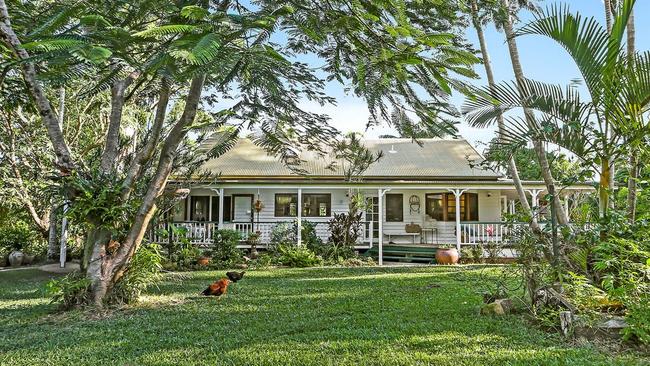
Cooroy, Cooran and Black Mountain all recorded house price gains of more than 24 per cent in the 12 month period.
The strongest gains for house prices during the March quarter were in Rockhampton, where the median house price rose 13.1 per cent — off a very low base — to $165,804.
On the Gold Coast, house prices in Mermaid Beach jumped nearly 13 per cent in the same period to a median of $1.56 million, while Marcoola was a standout on the Sunshine Coast.
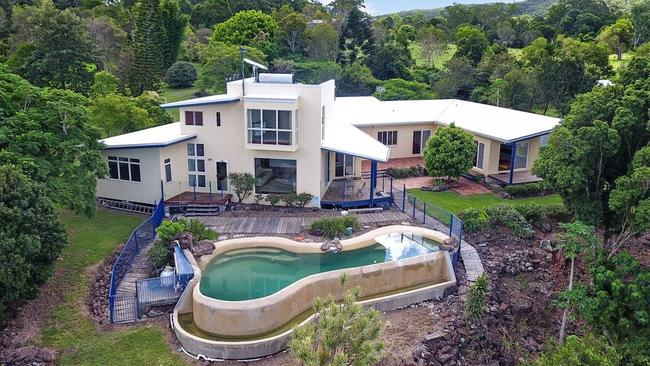
When it comes to units, the Wide Bay region has outshone the rest of the state, with unit prices skyrocketing more than 16 per cent in Rainbow Beach, followed by Tin Can Bay with a near 13 per cent gain in its median unit price.
And the median unit price in Noosa Heads is now a whopping $1.05 million — breaking through the $1 million mark for the first time ever.
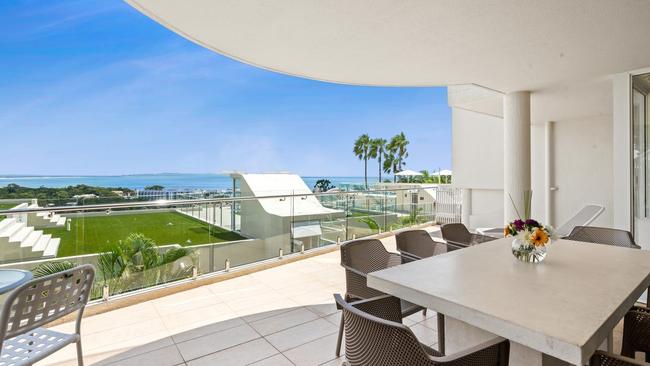
Ms Owen said interstate migration and the normalisation of remote working combined with a desire to escape high density living was helping to drive the gains in lifestyle markets like the Gold and Sunshine coasts.
“I think somewhere like the Sunshine Coast in particular has potentially been quite undervalued,” she said.
“The Gold Coast market has consistently outperformed Brisbane for quite some time.
“The fact these markets are still a commutable distance to Brisbane (is driving growth), and perhaps even prompted a shift from parts of Brisbane through COVID.”
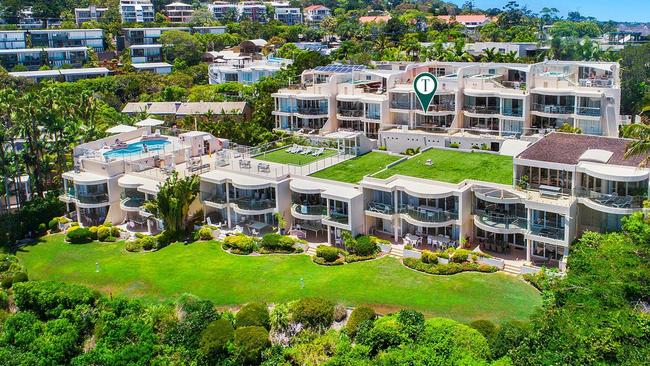
Buyers agent Michelle Lacey of Lacey & Co said it was more challenging than ever to buy in the current market with prices rising so quickly.
“Finding a home in 2021 is all consuming, with the crushing experience of homes selling offmarket, or prior to auction,” Ms Lacey said.
“There are so many unknowns and so you need to not only have your ducks and put them in a row, but you need to have finance ready, so a good mortgage broker, a conveyancing solicitor,” Ms Lacey said.
“Everything is going pre-market at the moment.”
Buyers ‘roll-up’ to see property once owned by circus royalty


